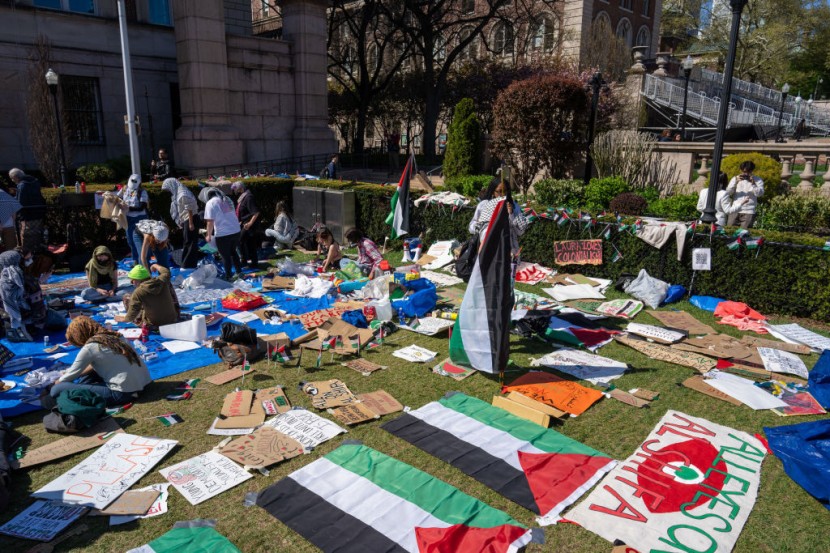
As Passover began Monday night (Apr. 22), Jewish students of Columbia University have been divided about how to celebrate Seder, the ritual meal of the holiday.
The New York Times reported that while some Jewish students would celebrate the Seder meal in more traditional settings, pro-Palestinian Jews commemorated the biblical story of Moses and the Hebrew people's flight from Egypt at the picket lines, and for those at Columbia, at the makeshift encampment inside the campus.
About 100 students and faculty - some clad in Palestinian kaffiyehs and others with Jewish skullcaps - gathered in a circle around a blue tarpaulin heaped with boxes of matzo and food they had prepared in a kosher kitchen.
They distributed handmade Haggadah prayer books for the Passover holiday and read prayers in Hebrew, keeping to the traditional order.
What made the Seder table in the Columbia encampment different from other Seder tables was the addition of the watermelon on the Seder plate to represent the flag of Palestine.
There were also repeated references to the suffering of the Palestinian people and the need to ensure their liberation. In lieu of wine, which is forbidden in the alcohol-free encampment, grape juice was used for the ceremony.
Other pro-Palestinian encampments and protests across the United States - particularly in Ivy League schools - also have similar scenes, including the arrest of some protest organizers and anti-Zionist Jewish students.
At Columbia, roughly 15 of the students who have been suspended for their involvement in the encampment were Jewish, organizers said.
As a result of the encampment, Columbia decided that, technology permitting, its main campus would be in hybrid learning mode until the spring semester ends, CNN reported.
"Safety is our highest priority as we strive to support our students' learning and all the required academic operations," the university said in an announcement Monday night.
The last day of classes is Apr. 29, according to Columbia's academic calendar.
Meanwhile, the Seder ceremony at Yale University has been appropriated to the war in Gaza and the apparent plague the institution and the community surrounding it have been facing, such as "the confinement of free speech," "the policing of New Haven," "apathy, "misinformation," "ignorance," and "capitalism."
On the other hand, more traditional scenes have been observed with Orthodox Jewish students and faculty at the Chabad Columbia center off campus, where students sought a sense of community amid the tensions on campus.
According to the Times, five security guards were standing outside the center as a safety measure, given the multiple incidents of antisemitism on university campuses.
Rabbi Yuda Drizin and his wife Naomi were expecting over 100 students at the Seder ceremony at the center.
"It's actually our largest Seder yet," he said. "Our motto is 'Your Jewish home and family on campus,' so for the students that can't make it home, or that don't make it home, or that are here, they're celebrating as part of our family."
Meanwhile, over in Israel, police arrested 21 worshippers on suspicion of planning to sacrifice a Passover offering in the Jerusalem area.
According to the Jerusalem Post, among those arrested were two brothers aged 17 and 15 arrested on Monday at the Holy City's Givat Mordechai suburb.








